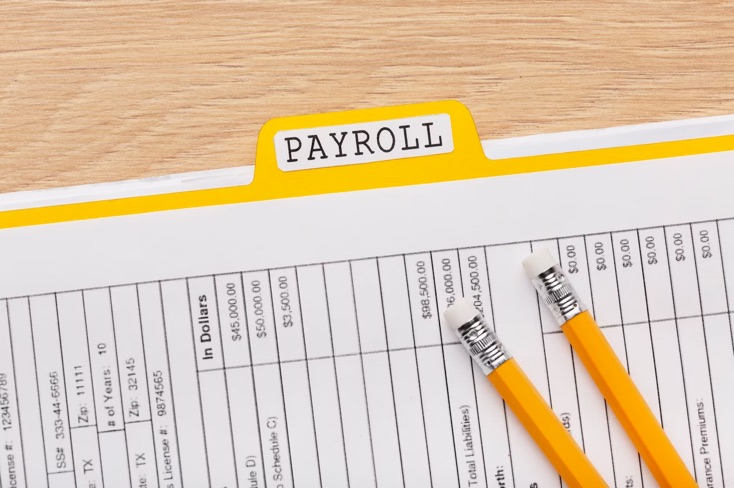
21 Aug 36 Timesheet Questions Answered by the Experts
Timesheet Questions Answered by the Experts
1. What is a timesheet?
A timesheet is a tool used to track the amount of time an individual spends on a task, project, or job. It’s commonly used in many professions to account for hours worked, ensuring accurate payment or allocation of time.
2. What is the difference between time cards and timesheets?
Time cards were traditionally physical cards used to clock in and out, capturing the “time in” and “time out” for employees. They’re often used in conjunction with a time in calculator or time card calculator. Timesheets, on the other hand, can be a daily time sheet or weekly and monthly records that track the hours an employee works on different tasks. These can come in various formats, such as the time sheet format in excel, known as the timesheet excel, or the daily timesheet excel template.
3. How can I benefit from timesheet software and apps?
Timesheet software, like timesheet management tools and timesheet calculator tools, streamline the process of tracking and calculating hours worked. Using a timesheet app or time tracking app, employees can easily log hours, reducing errors and enhancing accuracy. Employee time tracking software offers analytics, insights, and integration with payroll systems. For convenience, there are free time tracking software options available, and for those on the go, an employee time tracking app might be ideal. The best time tracking app usually offers both easy input methods and robust reporting features.
4. Are there templates available for creating my timesheet?
Yes, there are numerous templates available to help structure your timesheet. A time sheet template or timesheet template excel is especially popular for those familiar with spreadsheet software. You can find daily timesheet templates and daily time sheet format options that cater to specific tracking needs. These templates can simplify the process of setting up and maintaining your employee timesheet records.
Free timesheet templates by ClockIt
5. Why is it important for businesses to use time tracking software?
Time tracking software, including free time tracking solutions, offers a systematic way to monitor work time tracking, ensuring that employees are paid accurately. These tools, like the timesheet software or timesheets for employees, can also provide insights into workforce productivity and help in resource allocation. Moreover, employee time tracking tools allow for easy documentation, which is crucial for compliance and project management purposes. With an efficient system in place, businesses can optimize operations and manage their workforce more effectively.
Know more about the ClockIt time clock app.
6. What’s the advantage of using a timesheet calculator?
A timesheet calculator automates the process of totaling hours worked, reducing manual errors that can arise from manual calculations. Whether it’s a tool integrated into a comprehensive time tracking software or a stand-alone timesheet app, these calculators can handle complex calculations, such as overtime hours. By simplifying this aspect, employees can focus more on their tasks, and HR can ensure accurate and prompt payroll processing. For those looking for budget-friendly solutions, a free time tracking app might also come with a built-in calculator feature.
7. How can I transition from traditional time cards to digital timesheets?
Switching from traditional time cards to digital timesheets involves adopting timesheet software or a timesheet app suitable for your business needs. Start by evaluating various time tracking software options, considering both free time tracking solutions and premium ones. The employee time tracking features should be intuitive and user-friendly, ensuring a smooth transition. Once you’ve chosen your software, you can import your data, perhaps using a timesheet template excel or daily timesheet excel template to streamline the process. Training sessions can then familiarize your team with the new system.
8. Are there daily tracking options specifically for project-based work?
Yes, there are daily timesheet templates and software solutions tailored for project-based tasks. These tools, such as the daily time sheet format or daily timesheet excel template, allow employees to log hours against specific projects or tasks. This kind of work time tracking is invaluable for managers to understand project progress, resource allocation, and to manage budgets effectively. Furthermore, a specialized timesheet management system may also integrate with other project management tools for seamless operations.
9. Can I customize the look and feel of my timesheet using time sheet format in excel?
Absolutely! The time sheet format in excel, especially when using a timesheet template excel, offers flexibility in terms of design and layout. This means you can adjust columns, rows, and even incorporate formulas to automate calculations. With Excel’s comprehensive features, you can tailor your employee timesheet to reflect your company’s branding or to match specific departmental needs.
10. What are the benefits of using a free time tracking app versus a paid solution?
A free time tracking app can offer basic features suitable for smaller teams or businesses just starting with digital tracking. They’re cost-effective and can provide essential functions like simple work time tracking or basic employee time tracking. On the other hand, paid solutions might offer advanced features, better integration with other software, enhanced security, and dedicated support. It’s essential to weigh the specific needs of your business against the features offered by both free and paid platforms. Although the free tools may be very limited by their features, you can consider a paid tool with all features. This way you are not forced to upgrade for basic features.
11. How can I ensure the accuracy and integrity of entries in my timesheet?
Ensuring accurate entries starts with a clear communication of expectations and regular training sessions for employees. Using timesheet software or a timesheet app with automated reminders can prompt users to complete their timesheets promptly. Features like time in calculators or time card calculators can minimize manual entry errors. Regular audits or reviews of timesheets for employees can also detect inconsistencies, while feedback loops ensure employees understand the importance of accurate time logging.
12. How do timesheet apps integrate with other business software?
Many timesheet apps are designed to seamlessly integrate with various business tools. Whether it’s payroll systems, project management tools, or invoicing software, integration allows for a more streamlined workflow. This interoperability means that data from your timesheet software can be automatically imported or exported to other platforms, reducing manual data entry and the possibility of errors. Before selecting a timesheet app, it’s crucial to check its compatibility with the software your business already uses.
13. What’s the role of mobile solutions in employee time tracking?
Mobile solutions, particularly time tracking apps, play a significant role in modern employee time tracking. Given the rise of remote work and on-the-go job roles, mobile apps allow employees to log their hours from anywhere, anytime. This flexibility ensures that even if an employee is away from their primary workstation, their hours and tasks can still be accurately recorded. It also caters to businesses with fieldwork, where traditional timesheet methods may be impractical.
14. Are there any security concerns with digital timesheet solutions?
Like any digital tool, timesheet software and apps come with security considerations. It’s essential to select a platform that offers robust data encryption, regular backups, and user authentication mechanisms. A reputable employee time tracking software will prioritize protecting user data and maintain compliance with data protection regulations. Always review the security features of a platform and check for user reviews or professional recommendations when considering a solution.
15. How do I motivate my employees to consistently use the timesheet system?
Employee engagement with the timesheet system is crucial for its success. Regular training sessions can ensure that everyone knows how to use the system correctly. Implementing a user-friendly time tracking software or app can make the process less tedious. Setting clear expectations and explaining the benefits, such as accurate payroll and improved resource allocation, can also motivate usage. Lastly, periodic reminders and positive reinforcement can encourage consistent and timely entries.
16. Can digital timesheet solutions support multiple projects or tasks simultaneously?
Yes, most digital timesheet solutions are built to accommodate multiple projects or tasks simultaneously. Whether you’re juggling different client assignments or managing various internal projects, timesheet software can usually segment time entries by project, task, or any other categorization relevant to your business. This feature allows for better project management, accurate billing, and more detailed insights into how time is allocated across different initiatives.
17. What is the importance of timesheet approvals?
Timesheet approvals are a critical step in ensuring that recorded hours are accurate and reflective of the work performed. This process acts as a safeguard against potential errors or discrepancies in an employee’s time entries. By having a supervisor or manager review and approve timesheets, companies can ensure that payroll is accurate, resources are allocated correctly, and that there’s accountability in the time tracking process. This added layer of verification builds trust and transparency between employees and management.
18. How does the timesheet approval process typically work?
The timesheet approval process often begins with an employee filling out and submitting their timesheet by a specified deadline. Once submitted, a supervisor, manager, or designated approver reviews the entries for accuracy and consistency. If there are any questions or discrepancies, the approver can return the timesheet to the employee for clarification or correction. Once the timesheet meets the approver’s satisfaction, it’s officially approved, often with a digital signature or mark, and then forwarded to the payroll or HR department for processing.
19. Can timesheet software automate the approval process?
Yes, many modern timesheet software systems offer features that streamline and automate the approval process. These might include automatic notifications to approvers when a timesheet is ready for review, digital signatures for easy and quick approvals, and logging features that track any changes or comments made during the approval process. Automated systems can also flag unusual entries or discrepancies, prompting a more detailed review. These features save time and reduce the manual effort involved in the traditional approval process.
20. What should an employee do if their timesheet is not approved?
If an employee’s timesheet isn’t approved, they should first review any feedback or comments provided by the approver to understand the reason. Open communication is crucial; the employee should reach out to their supervisor or manager for clarification if needed. Once the issue is understood, the employee should make the necessary corrections and resubmit the timesheet for approval. It’s essential to address any issues promptly to ensure timely processing, especially if pay or project deadlines are approaching.
21. How do timesheet approvals impact project management and budgeting?
Timesheet approvals play a pivotal role in project management and budgeting. Approved timesheets provide a verified account of the hours dedicated to specific projects or tasks. This data is invaluable for project managers to gauge project progress, assess if resources are being used effectively, and determine if projects are staying within budgeted hours. Consistent and accurate timesheet approvals ensure that project management decisions are based on reliable data, leading to better project outcomes and financial management.
22. How are timesheets used to calculate employee wages?
Timesheets, whether in a time sheet format or as an electronic timesheet excel, record the number of hours an employee has worked during a specific period. Using a timesheet calculator or even a time card calculator, employers can easily compute the total hours an employee has clocked in. For hourly employees, this total is multiplied by their hourly wage to determine their pay. For those with varying rates, such as overtime, the timesheet software will segment and apply the appropriate rates to corresponding hours.
23. What role do time tracking software and apps play in wage calculations?
Time tracking software and apps, like the timesheet app or employee time tracking app, automate the process of recording, calculating, and verifying the hours worked by employees. Instead of manual calculations, which can be prone to errors, the software uses a built-in timesheet calculator to process data from the time sheet or time cards. The best time tracking app can also account for different wage rates, breaks, and overtime, ensuring employees are paid accurately based on the data in their employee timesheet.
24 . How can an employee verify the accuracy of their wage using timesheets?
Employees can use the “my timesheet” feature in many time tracking software or timesheet app platforms to review their logged hours and any calculations made. If the system uses a daily time sheet format or daily timesheet template, they can check entries day by day. For those more comfortable with spreadsheets, they might prefer the timesheet template excel or daily timesheet excel template to analyze and cross-check their hours with their pay. If discrepancies are found, they can communicate with HR or their supervisor for clarifications.
25. Are there free tools available for calculating wages based on timesheets?
Yes, there are free time tracking software options and free time tracking apps available that can assist with wage calculations. These tools might offer basic functionalities like work time tracking and a simple timesheet calculator. For businesses or individuals looking for a budget-friendly solution, the free time tracking app can be a starting point, but it’s crucial to ensure its accuracy and reliability, especially when it comes to employee compensation.
26. How do different time sheet formats impact wage calculations?
The time sheet format, whether it’s a simple time sheet, timesheet excel, or a detailed daily time sheet format in excel, can influence how wages are calculated. A more segmented and detailed format, like the daily timesheet excel template, allows for precise tracking of hours, breaks, overtime, and specific tasks. On the other hand, a basic time sheet template might provide a broad overview of hours worked without much granularity. The choice of format should align with the business’s payment structure and the level of detail needed to ensure accurate wage calculations.
27. What is the significance of timely timesheet submission for payroll?
Timely submission of timesheets is paramount to ensuring that the payroll process operates seamlessly and that employees are compensated accurately for their work. When timesheets are submitted on schedule, the payroll department has adequate time to review, verify, and process wage calculations. This punctuality avoids any delays in salary disbursements and ensures that employees receive their paychecks on the expected date, fostering trust and reliability in the compensation system.
28. How frequently are timesheets typically submitted for payroll processing?
The frequency of timesheet submission depends largely on an organization’s payroll schedule. For companies that process payroll bi-weekly, employees usually submit their timesheets at the end of every two weeks. Monthly payroll cycles would require monthly timesheet submissions. Some businesses with weekly pay cycles might ask for weekly timesheet entries. Regardless of the frequency, it’s vital that employees are aware of the submission deadlines to prevent any payroll hitches.
29. What happens if an employee misses the timesheet submission deadline for payroll?
If an employee fails to submit their timesheet by the payroll deadline, it can lead to several complications. Firstly, there might be a delay in their wage processing, meaning they could receive their paycheck later than their peers. In some cases, if the payroll system is automated, missing the submission could mean waiting until the next pay cycle to get compensated. Additionally, the employee might need to provide a written explanation or undergo a review process, which emphasizes the importance of timely timesheet submission.
30. Can digital tools help remind employees about timesheet submission deadlines?
Absolutely! Many modern timesheet software and apps come equipped with reminder features. These can send notifications, emails, or app alerts to employees as the submission deadline approaches. Such reminders can significantly reduce instances of forgotten or late submissions, making the payroll process more efficient. Supervisors or team leaders can often customize these reminders, tailoring them to specific team needs or payroll schedules.
31. Are there any measures in place to verify the accuracy of timesheets before they’re submitted for payroll?
Yes, before timesheets head to the payroll department, there’s typically a verification or approval process in place. This involves a manager, supervisor, or designated team leader reviewing the timesheet entries to ensure they accurately reflect the hours worked. Some digital timesheet systems even incorporate automatic validation checks, flagging any anomalies or inconsistencies for review. This two-step verification—first by the software and then by a supervisor—ensures that the data going to payroll is as accurate as possible.
32. What are the direct financial implications of delayed timesheets on employees?
When timesheets are delayed, one of the most immediate concerns is the potential delay in employee compensation. If the timesheet is the primary document verifying hours worked, a delay in its submission could lead to a delay in processing wages, meaning employees might not receive their paychecks on the scheduled payday. In the worst-case scenario, they might have to wait until the next pay cycle, causing financial strain and potential dissatisfaction among staff.
Also Read: Our articles on employee wellbeing.
33. How can delayed timesheets impact company budgeting and financial planning?
From a broader organizational perspective, delayed timesheets can skew the accuracy of financial records and projections. If timesheets aren’t processed promptly, the financial data reflected might not represent actual labor costs incurred within a specific period. This can hinder accurate budgeting, financial forecasting, and resource allocation for projects, potentially leading to overspending or underutilizing funds.
34. Can delayed timesheets affect team dynamics and morale?
Yes, consistently delayed timesheets can breed frustration and mistrust within a team. If employees consistently witness or experience wage delays due to timesheet tardiness, they might feel that the company doesn’t prioritize their well-being and compensation. Supervisors might also face additional stress and administrative work if they constantly have to chase down late timesheets or rectify related issues. Over time, such operational hiccups can strain team relationships and lower overall morale.
35. Are there penalties or consequences for employees who consistently delay timesheet submissions?
In many organizations, consistent delays in timesheet submission can lead to disciplinary actions. The exact consequences vary by company, but they might include verbal or written warnings, mandatory training sessions on time management, or, in extreme cases, more severe penalties like docking of pay or suspension. The idea is to underscore the importance of timely submissions and to maintain the integrity and efficiency of the payroll process.
36. How do delayed timesheets affect relationships with external stakeholders, such as clients or contractors?
For businesses that bill clients based on hours worked or need to compensate contractors based on their timesheets, delays can lead to invoicing or payment hitches. Clients might receive late or inaccurate invoices, which can hurt the company’s reputation and professionalism. Contractors, on the other hand, might face payment delays, leading to dissatisfaction and potentially impacting the quality or timeliness of their work. Maintaining punctual timesheet processes, in this case, is essential not just for internal operations but also for preserving healthy external business relationships.
Timesheets play a pivotal role in various facets of business operations, from employee compensation to financial planning and even external stakeholder relationships. Delayed submission and processing of timesheets can ripple through an organization, causing financial discrepancies, hampering team morale, and even straining external business relationships. The timely and accurate management of timesheets is therefore essential. With the advent of digital tools and software, there are more resources than ever to aid in this process. Companies should prioritize efficient timesheet management to ensure smooth operations, foster trust among employees, and maintain a professional standing with external partners.








